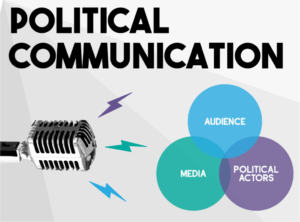By Samuel OWUSU-ADUOMI
As Ghana approaches the 2024 elections, political actors face the challenge of navigating a diverse political landscape and effectively communicating with an electorate influenced by a myriad of factors. In this era of information overload, mastering the art of effective communication is not just a strategic advantage but a prerequisite for success. Contextual messaging, the ability to tailor communication to specific audiences and situations, emerges as a powerful tool in the political arsenal. In this feature article, we delve into five ways political actors can develop and deploy contextual messaging to resonate with Ghanaian voters and build a stronger connection.

- Understanding diverse audiences
Ghana, characterized by its rich cultural diversity, demands a nuanced understanding of the unique needs and aspirations of its diverse population. Political actors must transcend a one-size-fits-all approach and recognize the regional, cultural, and socioeconomic variations that exist within the country. A successful strategy involves conducting thorough research to identify the key concerns of different voter segments. For example, an urban voter’s priorities may include infrastructure development and job creation, while a rural voter might be more concerned about agriculture and access to basic services. By acknowledging and addressing these unique concerns, political actors can establish a genuine and relatable connection with voters.
- Leveraging digital platforms
In an era dominated by technology, digital platforms have become an integral part of political communication. Social media, in particular, has emerged as a potent tool for reaching and influencing voters. Political actors should leverage these platforms to disseminate tailored messages that align with the concerns and interests of specific demographics. Successful digital campaigns involve creating shareable content, engaging in online conversations, and utilizing data analytics to refine messaging strategies. For instance, social media platforms like Facebook and Twitter can be harnessed to connect with the youth demographic, while WhatsApp might be more effective for reaching older voters. The strategic use of these platforms allows political actors to engage with their audience in real-time and amplify their message effectively.
- Real-time issue response
Adaptability is crucial in the ever-evolving landscape of political discourse. Political actors must be prepared to respond swiftly and transparently to emerging issues and public sentiment. This requires a robust monitoring system to detect shifts in public opinion and a well-prepared communication team capable of delivering timely responses. For example, if a scandal or controversy arises, a prompt and transparent response can help mitigate damage to a party’s reputation. Transparency builds trust, and addressing issues in real-time demonstrates a commitment to accountability, reinforcing the credibility of political actors.
- Storytelling for emotional connection
In the realm of political communication, facts and figures alone may not suffice to sway public opinion. Crafting compelling narratives that resonate with voters on an emotional level can leave a lasting impact. Personal stories, anecdotes, and narratives that highlight the positive impact of a party’s policies can evoke empathy and create a sense of shared identity. This approach humanizes the political message, making it more relatable to the electorate. For instance, sharing stories of individuals who have directly benefited from a party’s initiatives can build a connection that extends beyond mere policy discussions.
- Localised Campaigning
Ghana’s regions and communities vary significantly in terms of culture, economic activities, and priorities. Effective contextual messaging involves tailoring campaign strategies to address local concerns. This requires a grassroots approach that includes engaging directly with constituents through town hall meetings, community forums, and door-to-door campaigns. By understanding and addressing the specific needs of each community, political actors can build trust and credibility. For example, a party seeking support in a fishing community may focus on policies related to fisheries, while in an urban setting, emphasis may be placed on urban planning and job creation.
Conclusion
As political actors gear up for the 2024 elections in Ghana, the strategic implementation of contextual messaging stands as a linchpin for success. Understanding diverse audiences, leveraging digital platforms, responding to real-time issues, storytelling for emotional connection, and localized campaigning are not just strategies; they represent a commitment to fostering genuine connections with voters. In an age where information is abundant but attention spans are limited, mastering the art of contextual messaging is the key to leaving a lasting impression and securing the trust of the Ghanaian electorate. By employing these strategies, political actors can navigate the diverse landscape of Ghanaian politics and effectively communicate their vision for the nation’s future.










